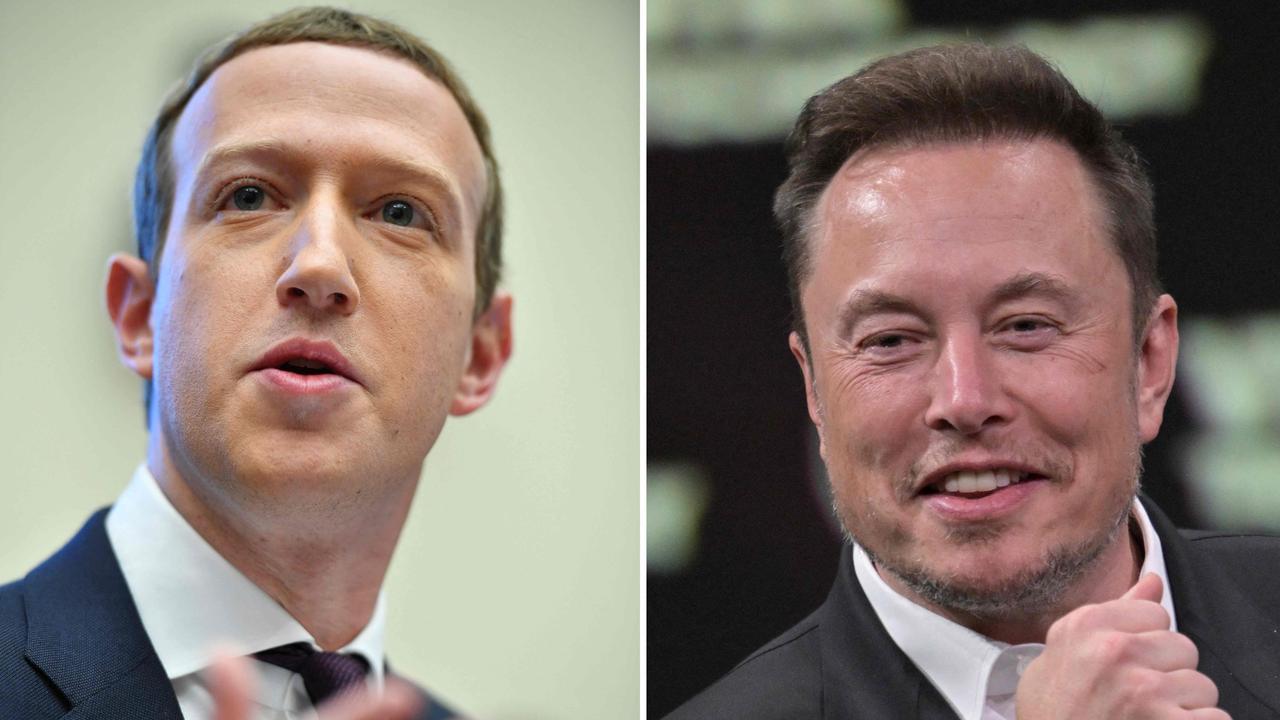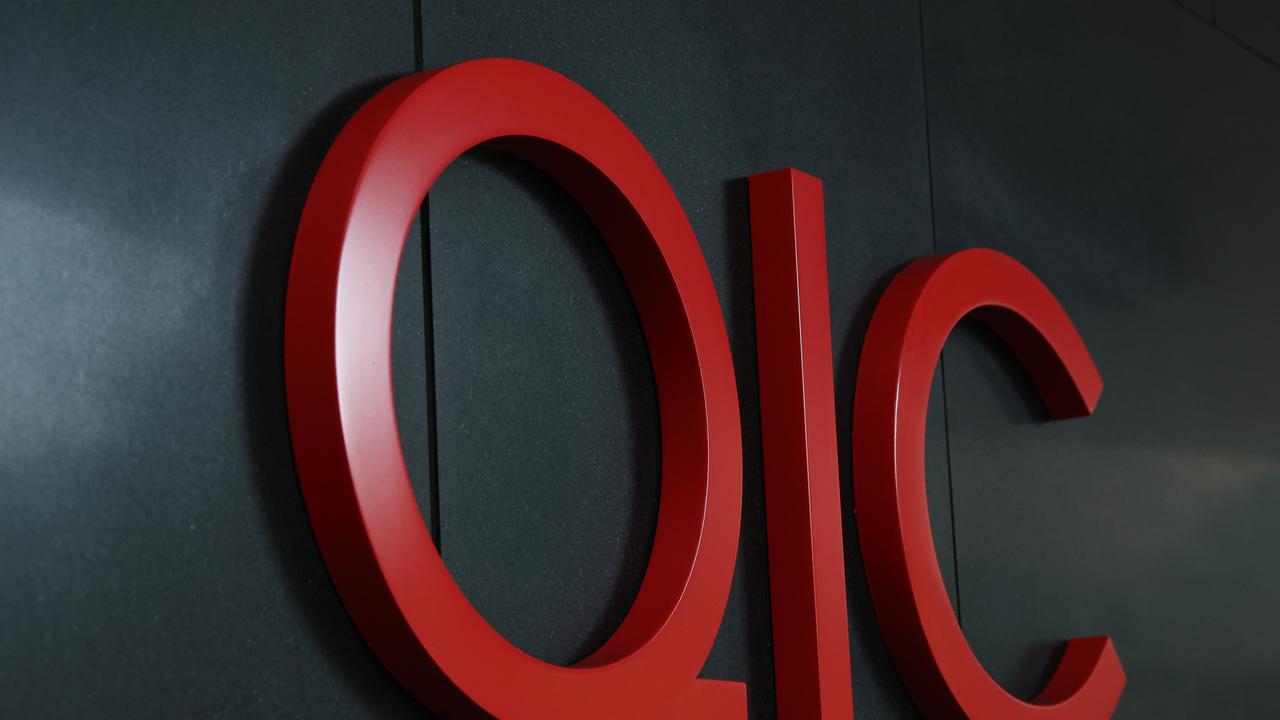Mindset shift needed to ‘manufacture in Australia’ again: James Dyson
The billionaire inventor who turned the vacuum cleaning market upside down says there’s a big obstacle to being a manufacturing force again.
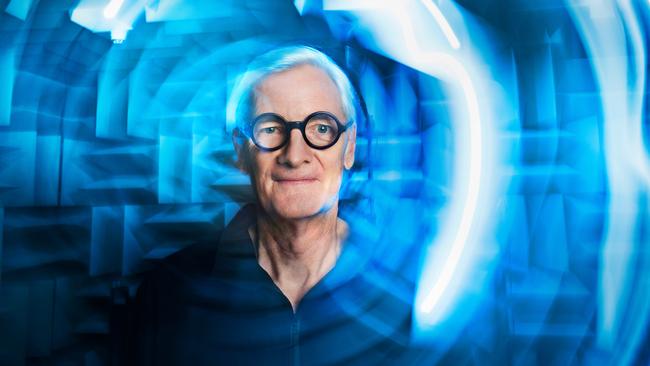
Business
Don't miss out on the headlines from Business. Followed categories will be added to My News.
A major cultural shift will be needed if countries like Australia and Britain want to make more things at home and become manufacturing powers again, according to inventor Sir James Dyson, one of the world’s most influential engineers.
As both countries attempt to rebuild their manufacturing bases, particularly since the pandemic, Sir James says this is only possible with the “right attitude”. And that could involve a generational change.
“We need more engineers,” Sir James tells The Australian in an interview.
He points out smart manufacturing is rapidly losing out to Asia, including Singapore, where he now bases the headquarters of his Dyson vacuum empire. There, universities churn out engineering graduates at a much higher rate, and this is replicated right through Asia. Back in Britain, where Sir James calls home, there are 10 times more people studying arts and media courses than engineering, he says.
“If you have the right culture, you can do it. If you don’t have the right culture, you can’t,” he says.
A designer and engineer, the 77-year-old built his empire around the simple idea of a bagless vacuum cleaner. He later moved his cutting edge designs into fans and hair dryers, using the same cyclonic principles used in the original Dyson vacuum. His high-end products have built a cult-like following, particularly his best-selling supersonic hair dryer.

Sir James has kept Dyson in private hands and is now the fifth-richest person in Britain, with an estimated worth of £23bn ($43.5bn), according to London’s Sunday Times.
Sir James’ comments come as Anthony Albanese is ramping up a push to expand the local manufacturing base, built around his “Future Made in Australia” policy, which is expected to form the centrepiece of Tuesday’s budget.
The Prime Minister’s onshoring push is a bid to win back Labor’s heartland vote, but it also in response to the extensive supply chain shocks Australia experienced during the pandemic that put the fire under inflation throughout the economy.
So too, Canberra wants to play a bigger role in the rise of new technology like generative artificial intelligence, while moving up the value chain in processing critical minerals, amid fears Australia will get left behind in a global race. Big miners, including BHP and Rio Tinto, have also expressed concerns about skills shortages, particularly with the massive investment in renewable energy over coming decades expected to put more demands on engineers.
The multi-billionaire has sought to counter the engineer shortage at home. Six years ago he started his own private university in Britain: the Dyson Institute of Engineering and Technology. Sir James says the course is a mix of real work experience and academic work. Graduates are running at about 40 per cent female, while the national average of engineering courses is about 15 per cent. “I’m very glad we did it,” he says.
A little over two years ago, Sir James moved Dyson’s headquarters and manufacturing from England to Singapore “because Britain’s not a good place to make things”, he says.
As part of the move, Dyson committed to investing $S1.5bn ($1.7bn) to expand research and engineering in the city state. The move was regarded as a major snub to Britain, particularly as it was attempting to carve out a future in smart manufacturing.
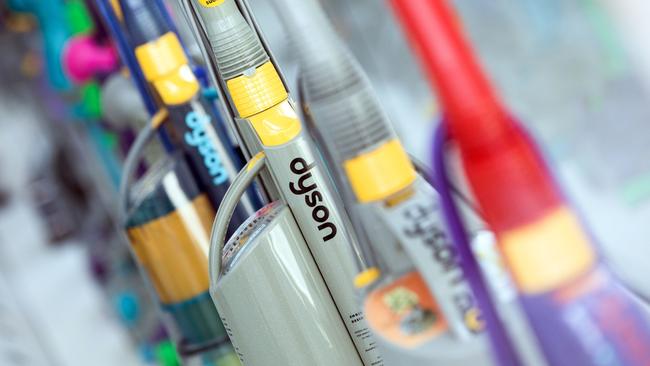
The Dyson WashG1, unveiled globally on Tuesday, is aimed at moving with the market, with households increasingly turning to hard-surface floors like wood or tiles over carpet. While simple in concept, it has taken Dyson three years to perfect the technology to separate dirty and clean water. The WashG1 is aimed at building up a new market for wet-floor cleaners where many just reach for the mop, something that’s pretty “old-fashioned” and unhygienic, he says.
Sir James says he is still very committed to Britain and has a big research, robotics and innovation facility outside Bristol, but Asia represents the world’s fastest-growing market.
“You have to be in Asia to be successful in Asia,” he said.
Sir James is not slowing down. Dyson is making a major bet on a new market, launching a hi-tech floor cleaner that uses water – not suction. The move marks the first time the home goods maker has moved beyond its trademark cyclonic-powered devices.
“It’s a new concept,” Sir James says. “It was quite a difficult machine to develop to get it absolutely right”.
“It’s a much more enjoyable and more effective way of cleaning hard floors and the current mopping method. When you’re mopping, it’s pretty well spreading dirt rather than picking dirt up.”
Sir James built Dyson up around his obsession for simplicity of design and innovation, and this has delivered a cult-like following for some of his products. He puts the strength of the private company down to being run by engineers, not accountants or marketers.
“It is a philosophy that runs through – my son (Jake) and myself are engineers. We run the company to produce good products, develop technology, and that’s what is important to us. We’re not in it to make money for our shareholders,” he says.
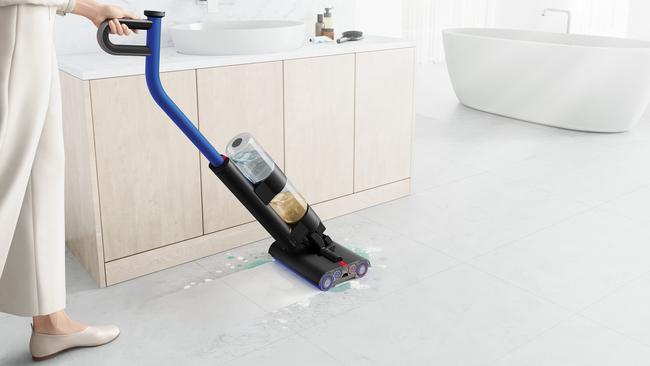
Keeping his company private, gives him the time to develop products without compromise. One of his newest vacuums, the Gen5detect, spins nine times faster than a Formula One engine, Dyson claims.
Staying private also gives him the freedom to make mistakes – including big ones.
Six years ago he outlined plans to build an electric vehicle, spending billions to develop a prototype, but he shelved the project a little over two years in over concerns about its financial viability.
“We can think long term. We don’t have to think short term and to a certain extent we were able to do the car and then stop it when we realised we wasted a lot of money and a lot of time,” he says.
“The same people who made – if you like – a big mistake, are still with the business running the business whereas, that couldn’t happen in a public company”.
Sir James is working with AI technology, mostly how it can adapt to his devices, including optimal motor speeds. Indeed, his company is one of the biggest backers of robotics and AI research in the UK. Much of the focus is mainly around getting the best from electric motors and automation through his vacuums. But he cautioned it is important not overwhelm customers with more features, where “they instead spend hours working out how to adjust the product and the conditions they want”. Instead, the machine needs to do this work for the customer.
“We want to make machines simpler to use and much more effective, rather than making it making them endlessly complicated”.
More Coverage
Originally published as Mindset shift needed to ‘manufacture in Australia’ again: James Dyson



